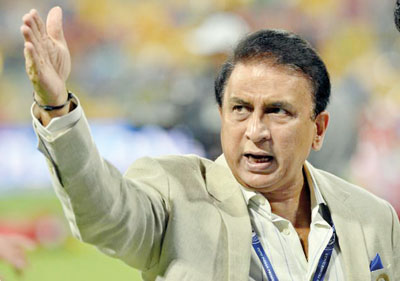India within its rights to boycott ICC Champions Trophy – Sunil Gavaskar
View(s):
Sunil Gavaskar
Former India skipper Sunil Gavaskar said fears of a global boycott if the BCCI pulled out of the ICC Champions Trophy, in retaliation to the global body slashing its share of revenue, were unfounded.
The Indian cricket Board is again on the path of confrontation with the International Cricket Council, and unless the issue is resolved within days, the BCCI could take the drastic step of pulling out of the ICC Champions Trophy in England starting on June 1.
The mini-crisis has been triggered after the ICC Board this week adopted a revised revenue and administrative model, nullifying the 2014 Big Three plan pushed through by India under N Srinivasan giving India, Australia and England the lion’s share of global cricket revenues.
The BCCI has not named the Champions Trophy squad and the deadline of April 25 has passed. The BCCI has called for an SGM on May 7 to decide its response after the loss of face in the Dubai meetings where every other full member Board backed the revamped revenue plan.
India within itsrights to boycott CT
Former India skipper, Sunil Gavaskar, believes India is within its rights to invoke the Members Participation Agreement (MPA), which was part of the 2014 deal, and pull out of the Champions Trophy.
“If they go strictly by the book, when the 2014 model came into being, I think with that legal agreement, they are entirely within their rights if they decide to withdraw from the tournament,” Gavaskar told NDTV. “The agreement that was there in 2014 has been completely overlooked. I don’t think we should forget that.”
He questioned the sanctity of the latest revamp. “The thing is– if the 2014 model has been overlooked, maybe you can overlook the 2017 model also in a couple of months. That is also entirely possible because in this world of constantly changing loyalties and constant changing friends, anything can happen,” Gavaskar told the TV channel.
No fear of global isolation
He brushed aside concerns among some cricket officials that the BCCI would be isolated and Indian cricket suffer if it boycotted the Champions Trophy. Gavaskar said IPL paid almost five times the money to foreign players, barring the big stars; get for playing in their domestic competitions. And the spike in TV rights every time India toured meant other Boards can ill-afford to keep India out.
“What perhaps would be — Australia and England (series) has been there since 1877 and is an iconic series — when it comes to other countries playing, they don’t get that kind of money. When India tour the money doubles, trebles, quadruples, I don’t exactly know by how much. So, there is no way India can be isolated.
That particular thing about being isolated, we should completely forget about that. They will not be isolated. There is no worry about the Indian Premier League being affected as well because the fees the overseas players get is not something they get even playing five seasons of domestic cricket. Apart from a few players at the top level, they don’t get it. The IPL will still have top level players coming and playing. Those two fears a lot of people have, (but) we should not have those fears.
BCCI influence has waned
However, Gavaskar felt the BCCI’s global influence has waned. “The only influence that has remained constant at international level has been that of England and Australia… Maybe India is not as powerful as it was maybe a couple of years back. Maybe they will have to look within themselves why that has happened, because of things that have happened, and only the BCCI is responsible for that,” he said.
Gavaskar dismissed the ICC argument that dismantling the 2014 revenue plan would ensure equitable distribution of funds.
“If the $590 million or whatever the BCCI was supposed to get, if that is wrong, then how is the $290 million or the other $100 million that is being offered, right? If the whole idea is equitable distribution among all cricket boards, then every board must get exactly the same amount.
Courtesy Hindustan Times


